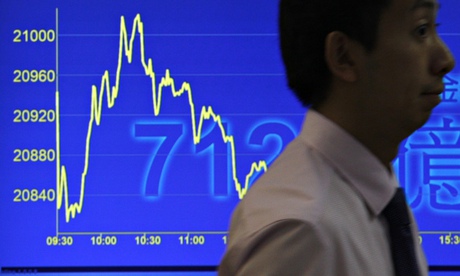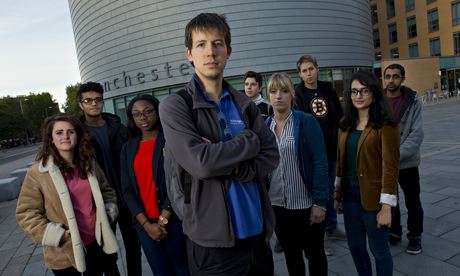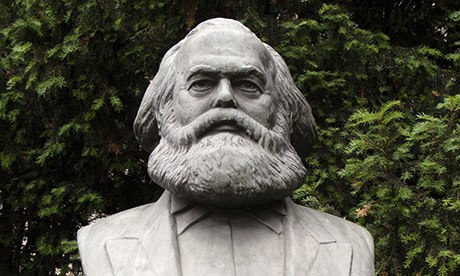Tony Blair
2018 will be the year when the fate of Brexit and thus of Britain will be decided. 2017 was too early in the negotiation. By 2019, it will be too late.
Realistically, 2018 will be the last chance to secure a say on whether the new relationship proposed with Europe is better than the existing one. And to insist that the ‘deal’ contains the necessary detail to make the say meaningful.
Today we publish ‘What We Now Know’, what we have learnt about Brexit since 23rd June 2016.
I make no secret of my desire that Britain stays in the European Union. This is the most important decision we have taken as a nation since the Second World War. It decides the destiny and fortunes of our children for years to come. And I believe passionately that by exiting the powerful regional bloc of countries on our doorstep, to whom we are linked physically by the Channel Tunnel, commercially by the Single Market, historically by myriad ancient ties of culture and civilisation, and politically by the necessity of alliance in an era which will be dominated by the USA in the West and China and India in the East, we are making an error the contemporary world cannot understand and the generations of the future will not forgive.
But the campaign in the first instance is not to reverse the decision; but to claim the right to change our minds once we see the terms of the new relationship.
No one disputes the 2016 vote. And no one disputes that if it stands as the expression of British opinion, we will leave.
The issue is whether as facts emerge, as the negotiation proceeds and we have clarity over the alternative to present membership of the EU, we have the right to change our mind; whether the ‘will of the people’ – this much abused phrase - is deemed immutable or is permitted to mutate as our perception of reality becomes better informed.

When we voted in 2016, we knew we were voting against our present membership of the European Union, but not what the future relationship with Europe would be.
It was like having a General Election in which the question is ‘Do You Like the Government’? If that were the question, few incumbent Governments would be re-elected.
Once we know the alternative, we should be entitled to think again, either through Parliament or an election or through a fresh referendum, which will, of course, not be a re-run of the first because it will involve this time a choice based on knowledge of the alternative to existing EU membership.
Over the past months the Brexit landscape – hitherto obscured in the fog of claim and counter claim – is being illuminated.
We have now had the Budget prediction that, due to Brexit, economic growth is going to be below expectation not just this year but averaging 1.5% for the next 5 years in a row. This has not happened for over 30 years. This is in addition to the fall in our currency, fall in living standards and now the first falls in employment.
Concomitant with that was the admission that we would have less and not more to spend on the NHS and that, for the next years at least, we will not be getting money back from Europe but, rather, giving a large sum to it.
Then there was the Northern Ireland negotiation. The claim the issue is now ‘resolved’ is risible. It is merely postponed. Instead, the negotiation revealed the nature of the real choices we face and the tension at the heart of the Government’s negotiating position.
In essence, there are 4 options in approaching the Brexit negotiation:
To re-think and stay, best done in a reformed Europe, where we use the Brexit vote as leverage to achieve reform.
To exit the political structures of the EU, but stay in the economic structures ie the Single Market and Customs Union.
To exit both the political and the economic structures of Europe but try to negotiate a bespoke deal which recreates the existing economic benefits and keeps us close to Europe politically.
To exit both structures, to make a virtue of leaving, to negotiate a basic Free Trade Agreement and market ourselves as ‘Not Europe’.
Here is the rub: all the last three options are Brexit. But they have vastly different impacts and outcomes.
The Government has ruled out option 2, is seeking to negotiate option 3, but a substantial part of the Tory Party is prepared to go for option 4.
The problem with option 3 is that this is simply not negotiable without major concessions which make a mockery of the case for leaving.
The problem with option 4 is that it would involve significant economic pain as we adjust our economy to the new terms of trade.
It is absurd to say that it is undemocratic to demand that the people be free to have a say on what the final deal is, given the wide disparity in the forms of Brexit and their consequences.
How can we assess the true ‘will of the people’ before we know what the alternative to present EU membership looks like given that the alternatives have such different effects?
Northern Ireland is a metaphor for the central Dilemma of this negotiation: we are either in the Single Market and Customs Union; or we will have a Hard Border and Hard Brexit.
It is the difference between the status of Norway and that of Canada. In the Norway case, there is full access to the Single Market but with its obligations, including freedom of movement.
In the case of Canada, there is a standard FTA with considerable easing of trade in goods but with border checks and without anything like the services access of the Single Market.
This really is a zero sum game: the nearer the Norway option, the more the obligations; the nearer the Canada option, the less the access.
It is not a matter of who is the toughest negotiator. The Dilemma flows naturally from the way the Single Market was created. It is a unique trading area with a single system of regulation and a single system of arbitration namely the ECJ.
The whole point of it is that it is not a FTA. It is qualitatively different.
So there is no way you can say I want to be out of its rules, but in its advantages.
The Single Market is one game; a FTA is another.
Think of it in this way. Suppose the English FA wants to arrange a football match with France. There are many things to negotiate about: the venue, the timing, the price of the tickets etc.
But suppose the FA then said to their French counterparts, we also want to negotiate whether we have 15 players on our team not 11. The French would say sorry but you have the wrong address, talk to the Rugby Federation.
Yet this seems to be the negotiating position of the Government.
David Davis asserts we will leave the Single Market and Customs Union but replicate ‘the exact same benefits’ in a new FTA.
Boris Johnson talks of diverging from Europe’s regulation but having frictionless border trade and full access to Europe’s services market.
The PM insists we will have the most comprehensive trade deal ever, weirdly forgetting we already have it.
Philip Hammond is arguing for close alignment to Europe after Brexit.
Meanwhile Liam Fox is cheerfully talking up the trade deals we will make once we are out of the Customs Union and away from that alignment.
Of course the FTA can be far reaching, though the more it covers the more complicated the negotiation and the greater the regulatory alignment.
But it can never replicate the ‘exact same benefits’ of the Single Market; not without obedience to its obligations and regulation.
The concessions we were rightly forced to make in respect of Northern Ireland express and expose the Dilemma.
If we want freedom of movement of people across the border on the island of Ireland, we can do it but only by effectively abandoning border controls on migration. So someone could move from mainland Europe to Dublin to Belfast to Liverpool without any check.
It is often said by Brexiteers that Norway and Sweden don't have a hard border for the movement of people. It is true. But that is because Norway is part of the Single Market; and so accepts freedom of movement.
In any event, it is now virtually conceded that Britain needs the majority of the European migrant workers and as our study shows, Brexit is already seriously harming recruitment in vital sectors, including the NHS.
If we want free movement of goods, then Northern Ireland will have to be in a relationship with the EU where the rules of the Customs Union still apply.
But if we do that, then how can the UK be out of it?
This is the conundrum we will face across the board. How will financial services and other sectors be able to trade freely in Europe without regulatory alignment?
Suppose Europe even agrees to do this on a ‘pick and choose’ basis, the ‘alignment’ they will demand will be alignment with Europe’s rules.
And how will disputes in these circumstances be arbitrated other than through the involvement of the ECJ?
Once this central Dilemma becomes manifest during the negotiation, the split in the Government will re-emerge.
The PM will still be in favour of Option 3, making the concessions and trying to present them as consistent with ‘taking back control’.
The true-believer Leavers will recognise the concessions contradict the essential reasons for leaving and will be in favour of then moving to option 4.
The British Civil Service is – or at least was in my time- probably the best in Europe. The problem isn't with the negotiators but with the negotiation.
The risk is that we end up with the worst of all worlds. We muddle along, alternating between options 3 and 4, depending on what part of the Tory Party is in the ascendency, try to ‘leave’ without really leaving, with a patchwork of arrangements which allows the Government to claim Brexit has been done; but which in reality only mean we have lost our seat at the table of rule-making.
This would be a grim outcome for the country.
And it is where the Labour Party faces its own challenge.
I would like the Labour Party to be on the high ground of progressive politics, explaining why membership of the European Union is right as a matter of principle, for profound political as well as economic reasons.
I disagree with our present position strategically.
But even tactically, it is mistaken.
First, because the Labour Party is saying that we too would do Brexit, we cannot attack its vast distractive impact. Labour could mount such a powerful assault on the Government’s record from the appalling state of the NHS to crime, which through neglect and failure to support the police is on the rise again, if we were saying to the country: here's the agenda which could be delivered for the people were not for the fact that all the energies of Government and substantial amounts of cash are devoted to Brexit.
And, second, it puts us in a vulnerable position when the Government concludes ‘the deal’ some time in 2018.
My bet is that the Government will try to negotiate an agreement which leaves much detail still to negotiate, because there is no way round the Dilemma. They will bank some low hanging fruit possibly e.g. tariff free access for goods (leaving for later non tariff issues). For Europe since they have a whacking great surplus with Britain on goods, this is a no-brainer.
But on access for services, which have driven most of our export growth over the last 20 years, are 70% of our economy, and where we have the surplus, we will be blocked without major concessions. Unless the Government has found some miraculous way round the Dilemma, they will probably try to emulate the December Northern Ireland ‘agreement’ and have some general headings – more aspiration than detail - with a lot to negotiate after March 2019 during the transitional period where Britain will continue to abide by the rules of the Single Market.
The Government will then say it is this deal or no deal and Labour will be left arguing that they would be better negotiators. This isn't credible.
And here Labour has its own ‘cake and eat it’ phrases. The Shadow Chancellor says we will not be in ‘the’ Single Market but ‘a’ Single Market.
The Shadow Industry Minister talks of keeping the benefits of the Customs Union agreements but still being free to negotiate our own trade deals.
This is confusing terrain on which to fight.
Far better to fight for the right for the country to re-think, demand that we know the full details of the new relationship before we quit the old one, go to the high ground on opposing Brexit and go after the Tories for their failures to tackle the country’s real challenges.
Make Brexit the Tory Brexit.
Make them own it 100%.
Show people why Brexit isn't and never was the answer.
Open up the dialogue with European leaders about reforming Europe, a dialogue they're more than willing to have now because they realise Brexit also damages Europe economically and politically.
At every PMQs nail each myth of the Brexit campaign, say why the Tory divisions are weakening our country - something only credible if we are opposed to Brexit not advocating a different Brexit, and challenge the whole farce head on of a Prime Minister leading our nation in a direction which even today she can't bring herself to say she would vote for.
If we do leave Europe, the governing mind will have been that of the Tory right. But, if Labour continues to go along with Brexit and insists on leaving the Single Market, the handmaiden of Brexit will have been the timidity of Labour.






